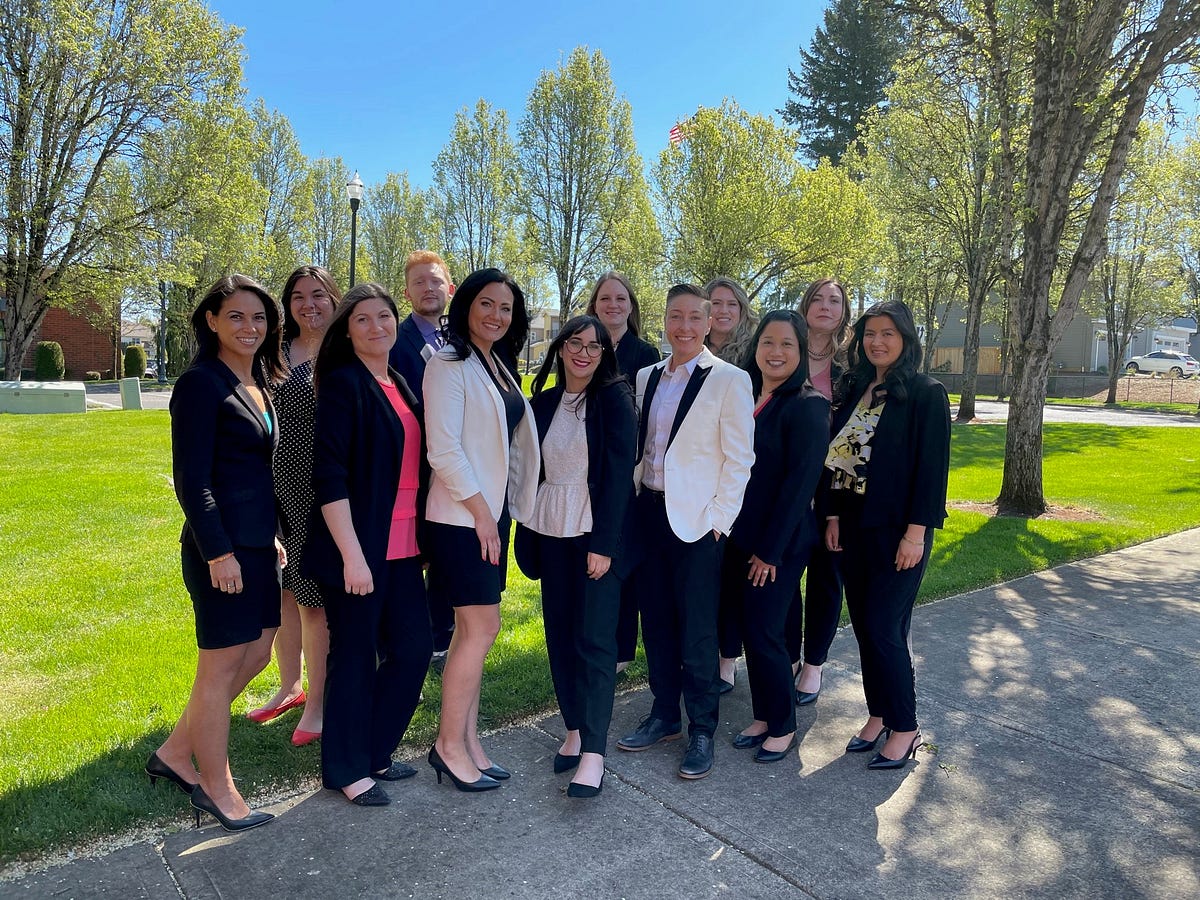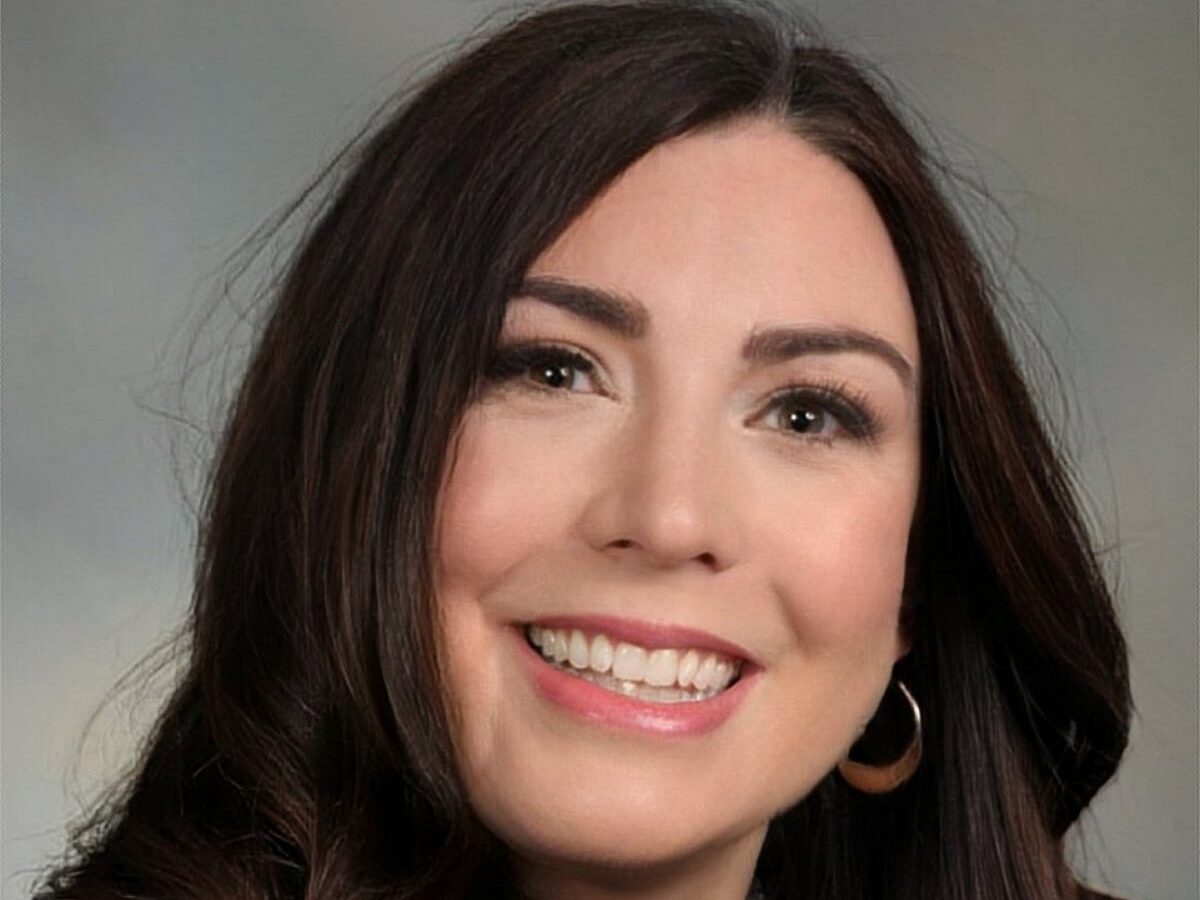Employees have the control: Employers must meet employees where they’re at versus expecting the workforce to meld to old societal expectations of work.
When it comes to designing the future of work, one size fits none. Discovering success isn’t about a hybrid model or offering remote work options. Individuals and organizations are looking for more freedom. The freedom to choose the work model that makes the most sense. The freedom to choose their own values. And the freedom to pursue what matters most. We reached out to successful leaders and thought leaders across all industries to glean their insights and predictions about how to create a future that works.
As a part of our interview series called “How Employers and Employees are Reworking Work Together,” we had the pleasure to interview Krista DiGiacomo.
Krista DiGiacomo is the Owner of the Vancouver, WA Express Employment Professionals Franchise. Krista started her career with Express working as a Marketing Assistant fresh out of college in 2002 and in 2019 had an opportunity to partner in the Vancouver, WA franchise. Over the last 21 years, she has had the unique opportunity to build an entire resume with various titles, responsibilities, and accomplishments without ever leaving her first “real” employer
Thank you for making time to visit with us about the topic of our time. Our readers would like to get to know you a bit better. Can you please tell us about one or two life experiences that most shaped who you are today.
I’m the daughter of “servant leaders” and always knew I’d find myself in a career where I could help people. My father was an educator and administrator in the Montana school system for 50 years and my mom was a public health nurse. I’m blessed to have found a meaningful career so early on in my occupational path and I know that I am who I am in large part because of my upbringing and the important work my parents did.
Let’s zoom out. What do you predict will be the same about work, the workforce and the workplace 10–15 years from now? What do you predict will be different?
Despite the hype and recent developments of artificial intelligence (AI), I believe that human capital will continue to be the biggest and most important asset of any organization. Technology should and will continue to create efficiencies for all industries and change the forecast of business in the next 10–15 years, but organizations will always need people and my hope is that our industry will continue to thrive in helping companies find great people to lead their organizations into the future.
What advice would you offer to employers who want to future-proof their organizations?
Employee burnout is a real issue in today workforce that will need to be addressed to create long term, sustainability for organizations. There are steps businesses can take to keep their most important assets (their employees) healthy. Small changes to a company’s culture can go a long way to prevent worker burnout and the negative consequences that come with it.
- Allowing hybrid and flex work schedules. Revisit the standard 5-day, 40-hour work week.
- Providing incentives or bonuses to keep employees engaged and motivated.
- Encouraging time off and breaks throughout the workday.
- Providing an EAP and other wellness resources for employees to easily access mental health care.
- Conducting weekly one on one’s with your team to really connect and meet them where they’re at.
What do you predict will be the biggest gaps between what employers are willing to offer and what employees expect as we move forward? And what strategies would you offer about how to reconcile those gaps?
Today’s generation doesn’t want to work the hours and have the same level of devotion to their jobs that generations of the past had. As employers, we need to find a way to close this gap by finding ways to leverage technology and create efficiencies to make our jobs less time intensive. While the jobs reports look good, absenteeism and the worker participation rates continue to pose challenges for businesses. These issues need to be addressed by taking a hard look at the way we work.
We simultaneously joined a global experiment together last year called “Working From Home.” How will this experience influence the future of work?
I’m not convinced this was an experiment that worked as effectively as everyone had hoped. I see more and more companies moving away from this option due to productivity concerns and the lack of camaraderie and teamwork a fully remote model can cultivate. People need human connection and a 100% work from home model can create a disconnect in your workplace. I think employers will have to continue to get creative with hybrid options and shortened work weeks to stay ahead of the demand for more flexibility within today’s workforce but we need to continue to adapt a model that serves both business functionality and our team members.
We’ve all read the headlines about how the pandemic reshaped the workforce. What societal changes do you foresee as necessary to support a future of work that works for everyone?
We need to take a new perspective on the standard 5-day, 40-hour work week. We need to provide an EAP and other wellness resources for employees to easily access mental health care. We need to take a hard look at putting people before profit in all aspects of our businesses.
What is your greatest source of optimism about the future of work?
I’m not sure I can pinpoint a single source of optimism but I am optimistic. I’m on the front lines being in the staffing industry, and I see good people doing good work every day.
Our collective mental health and wellbeing are now considered collateral as we consider the future of work. What innovative strategies do you see employers offering to help improve and optimize their employee’s mental health and wellbeing?
Prioritizing the health and wellness of employees has to be a top priority for employers. Small gestures and changes to a company’s culture around mental health care can go a long way to prevent worker burnout and the negative consequences that come with it.
It seems like there’s a new headline every day. ‘The Great Resignation’. ‘The Great Reconfiguration’. And now the ‘Great Reevaluation’. What are the most important messages leaders need to hear from these headlines? How do company cultures need to evolve?
Despite a hot jobs market, mass layoffs in certain industries, resignations, burnout, and inflation are causing employees to examine their personal mental health and find more balance in their lives. Company cultures have to evolve to this trend and fast. As the Boomers exit the workforce, the overall worker mentality no longer centers around 40–50+ hour work weeks and being the hardest working person in the room. Employees want flexibility, a shortened work week, and other perks and benefits that allow them to “work to live” vs. “living to work” as was the mentality of past generations. The sooner employers figure out this trend and find a way to grow their business and maintain peak productivity but allow for more efficiencies and a less arduous work schedules, the better.

Let’s get more specific. What are your “Top 5 Trends To Track In the Future of Work?”
- Have a plan for employee burnout: Employee burnout is a real issue in today workforce that will need to be addressed now and, in the future, to create long term, sustainability for organizations.
- Employees have the control: Employers must meet employees where they’re at versus expecting the workforce to meld to old societal expectations of work.
- Attracting Top Talent: Organizations must adapt to the changing landscape and get good at recruiting top talent again. Technology and online applications have reduced the people element in recruiting and has created a bottleneck. We need to get back to connecting with candidates and finding new ways for outreach to seek and attract top talent.
- Upskilling will be the new norm: Companies must provide learning opportunities and growth from within to retain and develop their workforce When employees are offered and encouraged to take advantage of upskilling opportunities for their personal or professional growth employee retention and engagement will also increase.
- Change is inevitable, embrace it: I think we can all agree we’re in a period of great change and transition. A global pandemic, political instability, inflation, recessionary activity, bank failures, AI interference…. you name it and we’ve faced it in the last few years. Change management and teaching our teams to embrace change will be an important tool in these coming years.
I keep quotes on my desk and on scraps of paper to stay inspired. What’s your favorite “Life Lesson Quote”? And how has this quote shaped your perspective?
Favorite all time quote, “Go confidently in the direction of your dreams! Live the life you’ve imagined.” — Henry David Thoreau
I was blessed enough to have been raised in a household that promoted strong feminist ideals and my parents raised me to believe I could do anything and be anything. I did not grow up thinking there was a “glass ceiling” to break. I grew up knowing that the sky’s the limit on what I could do and to go “confidently in the direction of those dreams.” I hope to pass along that same mentality to my own children.
We are very blessed that some of the biggest names in Business, VC funding, Sports, and Entertainment read this column. Is there a person in the world, or in the US, with whom you would love to have a private breakfast or lunch, and why? He, she, or they might just see this if we tag them.
I would love to sit down for lunch with the late matriarch of our organization, Cathy Stoller, again. She passed away a few years back and her presence is so missed within our organization. She played a large role in influencing the early part of my career and is a big reason why I’ve stayed with the organization for so long. She had a unique way of making you feel special and heard yet challenged you to show up and be the best version of yourself every day. I’m grateful for her mentorship and the impact she had in my early career.
Our readers often like to continue the conversation with our featured interviewees. How can they best connect with you and stay current on what you’re discovering?
LinkedIn is the best way to connect: https://www.linkedin.com/in/kristadigiacomo/
Thank you for sharing your insights and predictions. We appreciate the gift of your time and wish you continued success and good health.


